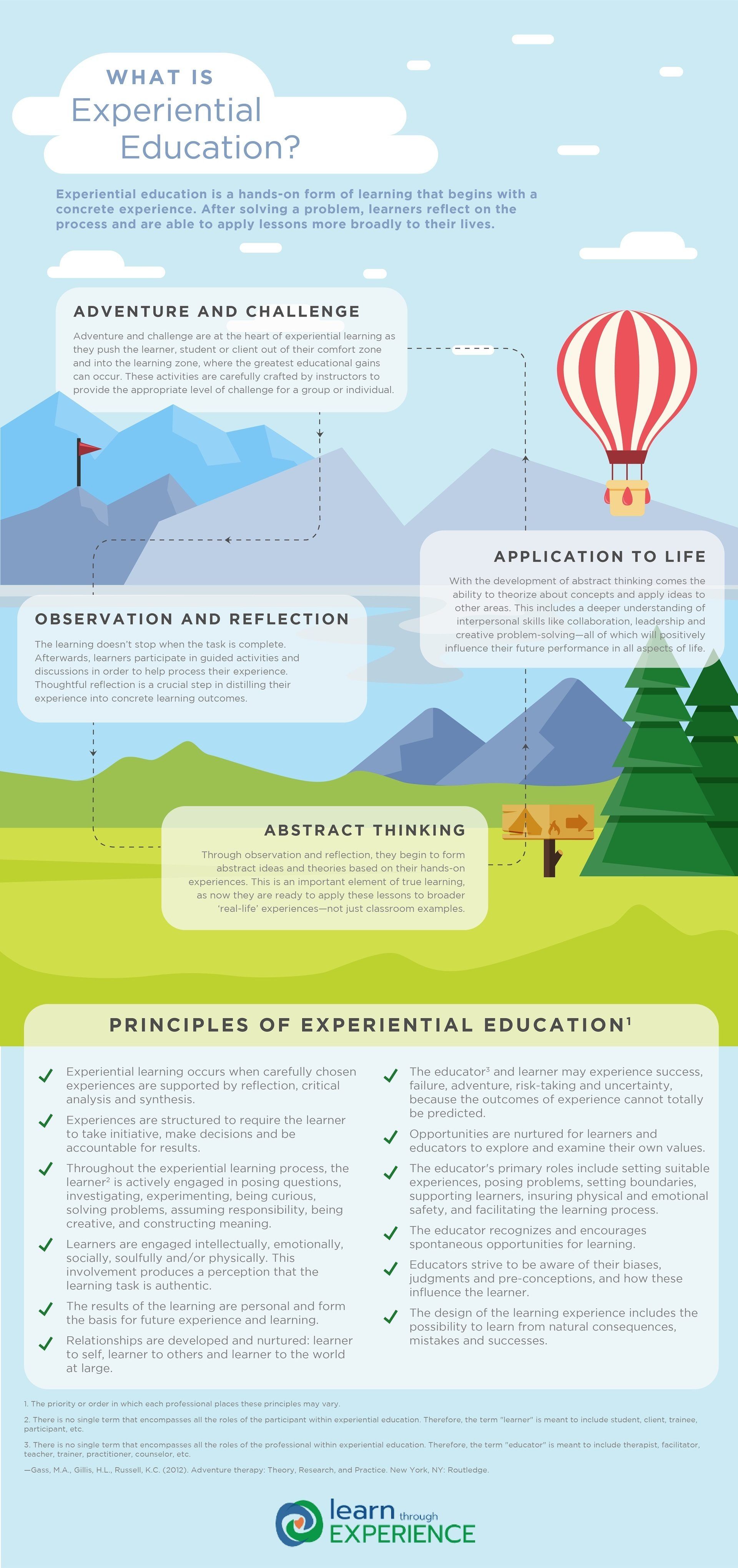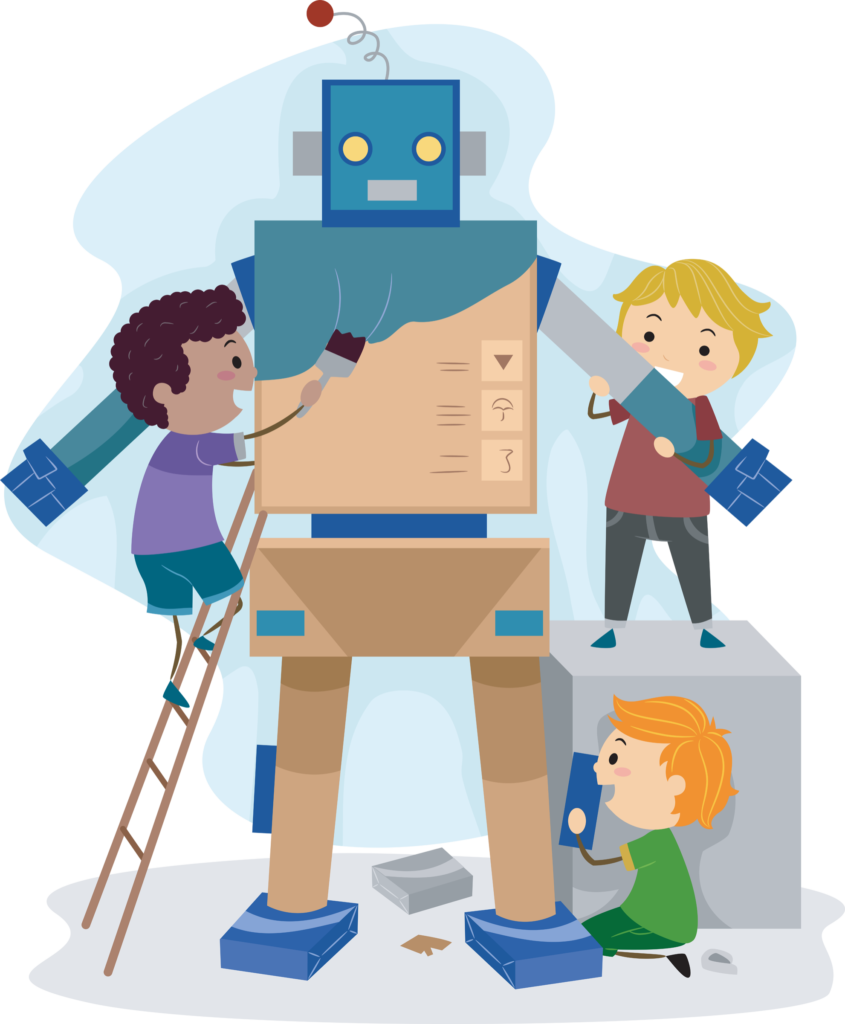Education is not a spectator sport. In fact, it’s not sport at all — education is serious business. Serious though education is, it doesn’t have to be boring. Education can (and should) be a good experience. Pundits have noted that Generation Y (aka Millennials) prefer to use their incomes to buy experiences rather than things. They find experiences make their lives richer and more satisfying. Experiential education can do the same thing for our students. Experiences are particularly important when teaching science, technology, engineering, and math (STEM). These subjects are traditionally considered difficult and dull. The right experiences can change that perception.
What is Experiential Education?
According to the Association for Experiential Education (AEE), “Experiential education is a philosophy that informs many methodologies in which educators purposefully engage with learners in direct experience and focused reflection in order to increase knowledge, develop skills, clarify values, and develop people’s capacity to contribute to their communities.”[1] Janet Eyler, a professor of the practice of education at Vanderbilt University, writes, “The challenge for liberal educators is to design learning environments and instruction so that students will be able to use what they learn in appropriate new contexts — that is, to enable the transfer of learning.”[2] Educators in STEM subjects face exactly the same challenge. Eyler adds, “Within professional programs, there is a long tradition of including field experiences as a way to build practitioner skills and facilitate the move from theory to practice.” I’m a firm believer in the value of experiences in helping students build practical skills and move from theory to practice. That is why I, along with a few colleagues, founded The Project for STEM Competitiveness. Our goal is to help introduce new ways of getting students interested in science, technology, engineering, and math by supporting extra-curricular activities that involve students in solving real-world problems using skills they learned in the classroom. Eyler continues:
“Experiential education has value far beyond building the kind of social skills, work ethic, and practical expertise that are important in professionally oriented programs. In fact, experiential education can also lead to more powerful academic learning and help students achieve intellectual goals commonly associated with liberal education, including
- a deeper understanding of subject matter than is possible through classroom study alone;
- the capacity for critical thinking and application of knowledge in complex or ambiguous situations;
- the ability to engage in lifelong learning, including learning in the workplace.
Experiential education also identifies the practices necessary for achieving these outcomes, particularly the use of structured reflection to help students link experience with theory and, thereby, deepen their understanding and ability to use what they know.”
I would argue the goals outlined by Eyler apply as much or more to STEM subjects as they do to liberal arts subjects. Education is all about learning and applying knowledge regardless of the subject at hand. The following infographic explains a little more about experiential learning and lists some of the principles associated with it.

Find more education infographics on e-Learning Infographics
Benefits of Experiential Learning
The staff at Wilderdom, a project in natural living & transformation, notes, “In experiential education, the student becomes more actively involved in the learning process than in traditional, didactic education. … Experiential educators operate under the assumption that educational goals can be effectively met by allowing the nature of learner’s educational experience to influence the educational process. Experiential educators are generally aware that experiences alone are not inherently good for learning. Thus, experiential [educators] try to arrange particular sets of experiences which are conducive towards particular educational goals.”[3] I like to think of experiential education as fun with a defined and measurable purpose. The following infographic lists few of the benefits of experiential learning.

Find more education infographics on e-Learning Infographics
Summary
One of the most important benefits of experiential learning is that it sparks a desire within students to be lifelong learners. Eyler explains why lifelong learning is important. “Classic transfer of learning stresses the match between the learning context and the situation in which learning is applied,” she writes. “In the twenty-first century, even if students were able to apply classroom learning effectively, they would soon find it outdated. … Building this capacity for continuous learning is another way to frame the role of experiential learning in transfer.” Andrew Ng (@AndrewYNg), a well-known AI expert and founder of Coursera, adds, “We’re entering an era in which lifelong learning is no longer optional. … In IT, half the stuff we invent today will be obsolete in five years. The sands are constantly shifting. You have to keep learning. This is becoming much more pervasive elsewhere in our economy, too. So tell your children: ‘Learn to be lifelong learners’.”[4] Students who become lifelong learners are better equipped to deal with the future. Experiential education can pique their desire to keep learning new things.
Footnotes
[1] Staff, “What is Experiential Education?” Association for Experiential Education.
[2] Janet Eyler, “The Power of Experiential Education,” Association of American Colleges & Universities, Vol. 95, No. 4, Fall 2009.
[3] Staff, “What is Experiential Education?” Wilderdom.
[4] Jason Dean, “The Optimistic Promise of Artificial Intelligence,” The Wall Street Journal, 13 June 2017.





